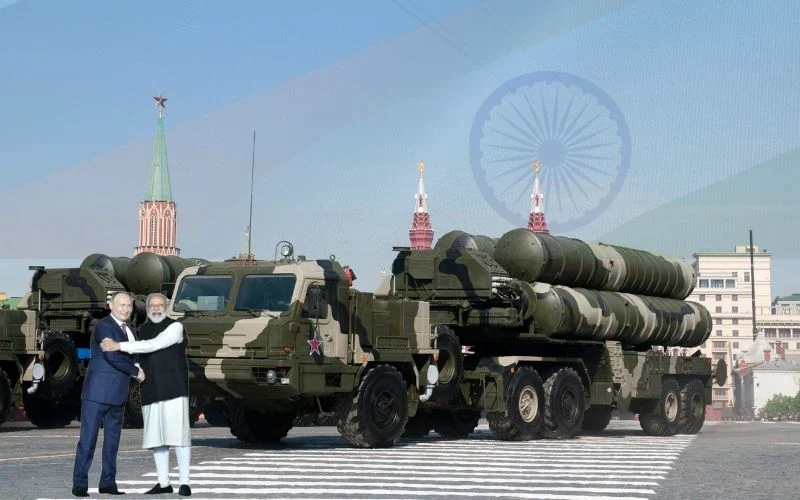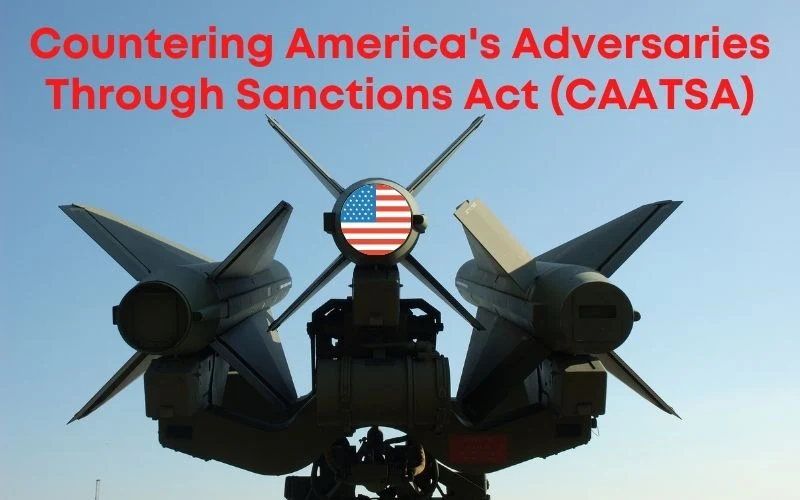{getToc} $title={Table of Contents}
The Missile Defence System is named S400. This is believed to be one of the best air-defence systems. As per the deal signed with Russia in 2014, China bought 6 S400 battalions.
MTCR Regime
Technically, one S400 can fire missiles up to a range of 400km to stop any air attack. But here is a point to be noted. Russia is a part of a group called MTCR (Missile Technology Control Regime). According to their laws, a member country of this group can't sell missiles of more than 300 km range to a non-member country.
"MTCR guidelines prohibit its member from transfer, sale or joint production of missiles beyond 300-km range with countries outside the club"
And China isn't a part of this group. So reportedly the S400 missiles given to China by Russia aren't the ones with 400 km but the ones that can target upto 250 km.
India's Deal With Russia
Here comes India's case. In 2018, India had a deal with Russia, to purchase five S400s for more than 40,000 crores or US $5 billion.
In November 2021, India has started receiving this extremely strong S400 air defence system. Now, India and Russia both are member of MTCR. So unlike China, the missiles that are getting delivered to India, they can go up to the extremely long range of 400 km. And that makes this purchase a massive addition to India's defence strength.
Why India's Purchase Of S400 Is A Big Deal?
The powerful device was named by Russia as S400 Triumf. And NATO calls it Growler. This system consist of 3 parts:
1. Radar:
It is so powerful that it can detect and track any aerial target until a 600 km range. That's too in 3D. 600 km is a lot. So much that if you place an S400 on India's borders then the Indian Air force will have the power to track Pakistan's whole airfield. This radar is so strong that it can identify and monitor 300 targets at a time including ballistic missiles, cruise missiles, fighter planes, helicopters and drones.
This information collected by this powerful radar is then sent to the second part of S400. That is the command and control centre.
2. Command and Control Centre
This centre has quite a lot of LCD consoles. In this all the information is monitored, that is controlled from the radar and accordingly, the missiles are launched. And then comes S400's most powerful part. Its missiles.
3. Missiles
Every S400 has 2 battalions, every battalion has 8 launchers, and every launcher has 4 tubes, and these contain deadly missiles. These deadly missiles can be of 4 types :
- 40N6E: This is the strongest one. It can destroy any air target within 400 km.
- 48N6: It can destroy any air target up to 250 km.
- 9M96E2: It has a range of 120 km.
- 9M96E: It has a range of 40 km.
Each of these missiles can target any aerial object at a 30 km altitude. The fact that each launcher has 4 different types of missiles, gives S400 a very wide range of distance. And makes it capable of creating a layered defence from just 40 km to 400 km.
This makes it one of the most lethal defence systems in the world. S400, at one given time, could target 36 air objects by launching 72 powerful missiles at the same time.
So whenever in India a lot of air targets attack together even then this one defence system can counter them all.
Mobility
Comparisons
The comparison of S400 has been done with many other defence systems. The American Thaad is considered one of the most powerful out of these. But even this is nothing when compared to the Russian S400.
Where S400's range is 400 km, Thaad's range is just 200 km. Thaad can travel almost 8 times faster than the speed of sound, whereas S400 can travel almost 14 times faster than the speed of sound. That is extremely fast!
Even faster than the fastest aircraft's in the world. To understand and study this powerful system, 100 people from the Indian Air Force had been sent to Russia. And because India has started receiving shipments of S400, this system can be set up faster.
Problems With USA
Like shutting the credit lines with US, shutting the sale of good etc. And when China and Turkey did a deal on S400 with Russia, then America imposed these sanctions on them.
In fact, that time's US Secretary of Defence had come to Delhi in March 2021, that's when they warned India against doing anything that will invoke CAATSA. In fact, the Americans wanted India to purchase America's Thaad System.
But India didn't do that and instead went ahead with its deal with Russia. There are several important reasons for this. India say that they started the agreement talks with Russia at the 2016 Goa BRICS summit. Whereas CAATSA came a year later in 2017.
India also say that they have the freedom to exercise strategic autonomy and to maintain the defence relationship with Russia.
In fact, since the time it was the Soviet Union, Russia has helped India with its defence so much that today Indian defence system is mostly filled with Russian technology.
Another thing to consider is India's relation with the US. India has always been one of the US's biggest trading partners. And in the last few years, the Indo-US political relationship has become strong.
So, at such a juncture, will India be able to avoid US sanctions? It is yet to be seen how this single defence system will impact geopolitics on the global stage.




